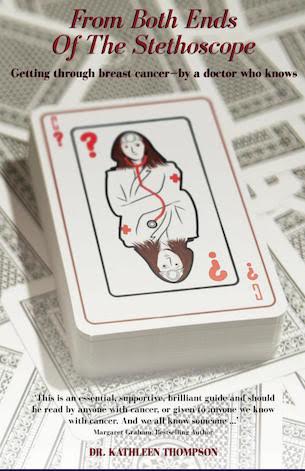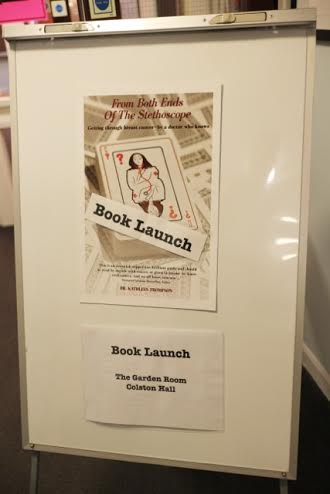
Frost was exceptionally pleased to be invited to the launch of From Both Ends of the Stethoscope by Dr Kathleen Thompson. Yes, we had champagne, and yes, the eats were fantastic, and most of us wore masks, but it it was the occasion. It was such fun, and the ideal way to launch a book – a book which after all, could be life changing.
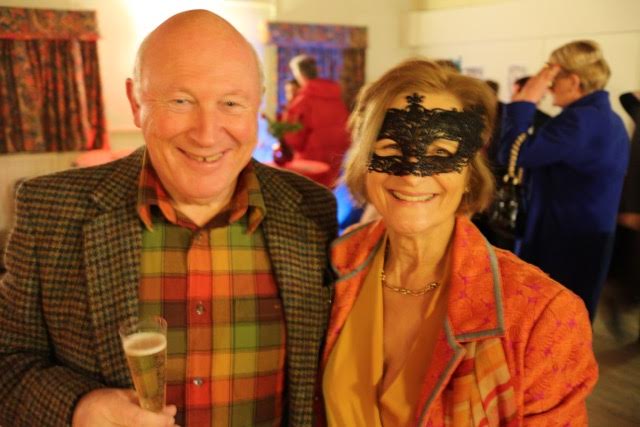
Frost’s Margaret Graham, duly masked meeting those waiting to buy a copy of From Both Ends of the Stethoscope
If you haven’t yet readthis guide which Dr Thompson wrote to help those with breast cancer, you should do so. She explains the ins and outs of treatment, the questions to ask, and includes wise words on helping to prevent a recurrence. All this alongside her own journey to recovery from the disease.
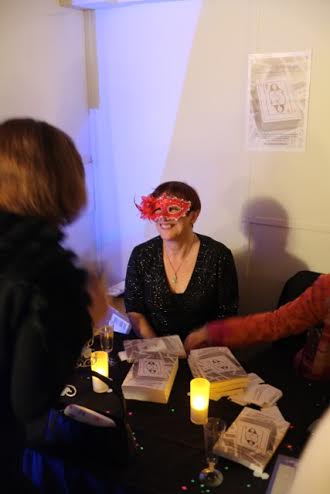
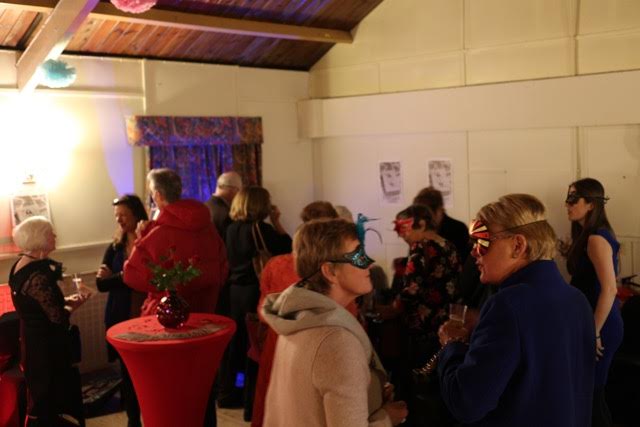
Dr Kathleen Thompson signing copies of her books.
Frost is proud to include a further excerpt from this truly fascinating book.
Chapter 1
Let’s face it, cancer is what happens to other people. Poor souls, with the sword of Damocles swinging on a fraying thread over their heads, these are people who are inevitably going to die, and soon. Of course we feel sorry for them — we’ll send them a card, a basket of fruit, some flowers, but we certainly don’t have plans to join their exclusive club.
Well guess what? All of us have cancer cells in our bodies on a fairly regular basis, and more than one in three of us in the western world will experience some form of cancer during our lives. So I’m afraid there’s a fairly high chance of ‘us’ becoming ‘them’. Maybe you’re reading this because you’ve already joined the ‘club’.
The good news is, our bodies are very capable of fighting cancer. Indeed, most of the time cancer cells are destroyed as soon as they develop, much in the way that our immune system hunts down and destroys bacteria or viruses. Other times, the cancer sneaks through our defences, but even if it does, it can still be overcome. I say ‘can’ because despite all efforts, some people do succumb. To keep things in perspective though, many cancer sufferers live to a very respectable old age, and eventually fill up completely different columns in the ‘cause of death’ statistics.
Cancer is on the increase, and there are many theories as to why. So, what steps can we take to reduce our chance of getting cancer, or to help fight an existing cancer? I have some ideas for you inside this book.
But first, who am I? What qualifications do I have that would permit me to offer you advice in what could be an extremely traumatic time? I’m a medical doctor. I’m on the wrong side of fifty and divorced. I have two fabulous children, a loving extended family and some good friends. I’d always worked hard, but I was starting to ease off, take up more hobbies and enjoy myself — when my life changed.
Like you, I never thought I would get cancer.
As a doctor, I would sympathise with cancer patients and offer them encouragement from within my armour-plated white-coat. They were the patients, I was the doctor. Simple.
Even when my developing cancer crept into my consciousness, I ignored it, and my own advice.
Maybe it would just go away.
But it didn’t, and I had to face the realisation that my life might be cut very short. Then, on top of that, I had to negotiate my way through complicated highly-specialised medical treatments and, on occasions, challenge medical decisions. I found this extremely hard, even as a doctor, because I was also a vulnerable patient, and I was depending on other doctors for my survival.
Cancer taught me a great deal. Primarily it taught me that diagnosis is not a death sentence. People can and do survive cancer, most of the time. However, being forced to face the possibility of my imminent demise, I gradually learned not to fear death either. I also learned to appreciate every day of this wonderful thing called life.
I have a lot to share with you, so welcome to Cancer Club —whether you have cancer yourself or you know someone who has.
From Both Ends Of The Stethoscope by Dr Kathleen Thompson
Available from: http://www.amazon.co.uk/Both-Ends-Stethoscope

